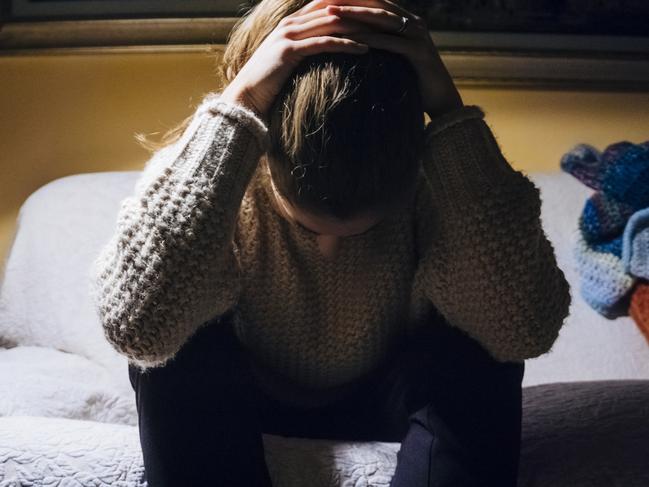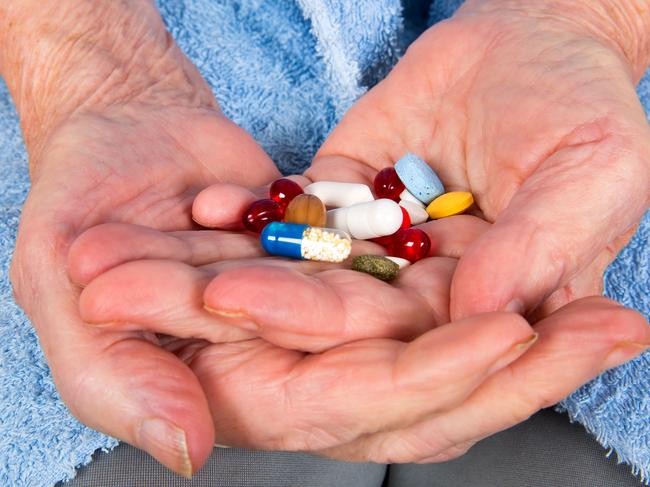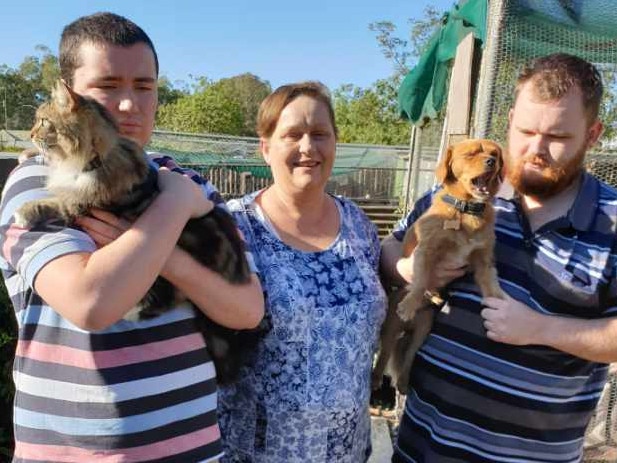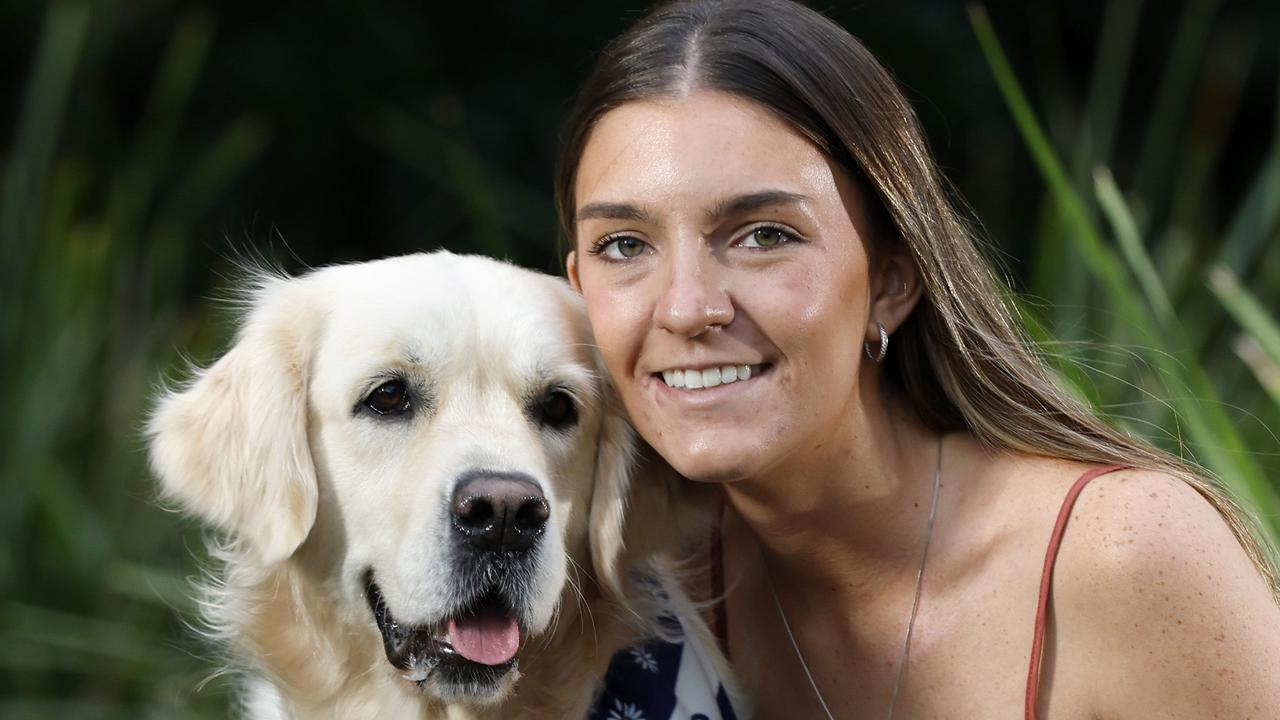The test that can tell if you are on the wrong antidepressant
Millions of Australians could be using the wrong antidepressants, causing all sorts of unnecessary and dangerous side effects. A simple test worth $170 could fix it — but doctors aren’t using it.

Health
Don't miss out on the headlines from Health. Followed categories will be added to My News.
A simple $170 test could prevent the wrong medication being prescribed to three million people with depression, but it’s not subsidised by Medicare.
The speed with which a person metabolises antidepressants can affect whether the drugs work or produce side effects like agitation, irritability, skin crawling or panic attacks.
It’s estimated 30-50 per cent of people with a mental illness are being prescribed the wrong antidepressant for their biological makeup.
But a genetic test could help doctors make the right medication choice.
However, the test is not subsidised by Medicare and most doctors don’t order it, a Productivity Commission inquiry into mental health has been told.
Three million Australians – one in eight people – are using an antidepressant and we rank second only to Iceland for use of the medications, and it’s raised concerns we are over-diagnosing and over-treating depression.

Yet only around 50,000 tests have been ordered in Australia to check a person’s genetic response to the drugs.
United Healthcare, the largest private health insurer in the USA, last year began paying for genetic testing to guide therapy decisions for people with severe depression.
And the Royal College of Pathologists Australia (RCPA) also recently published a position statement supporting the use of genetic testing in treating depression.
“In a report commissioned by the Australian Centre for Health Research in 2008, the authors estimated that the Australian healthcare system would save over $1 billion per year by implementing pharmacogenetic testing and thereby avoiding many adverse drug reactions,” the college said.
Royal Australian New Zealand College of Psychiatrists president Malcolm Hopwood said recent studies had found there was some improvement in treatment as a result of these genetic tests but more work needed to be done.
“We’re still learning about where these tests are useful,” he said.
Genetic testing company myDNA is asking the federal government to spend $17 million a year providing a Medicare rebate for pharmacogenetic tests for young people with a mental illness.

And it has told the Productivity Commission the testing “will result in faster recovery from depression, reduce suicide and save billions of dollars”.
However, some US experts claim the evidence the test works is weak and a study last year published in the Journal of Psychiatric Research found only some patients who had the test had improvements in their symptoms.
The genetic test works by revealing how fast a person’s body processes medication.
Around one in three people have a gene expression that means they process the antidepressant Cipramil too quickly for it to work but it takes two months’ use of the drug before this becomes evident to a doctor.
If a doctor knew this from the outset they could prescribe a different antidepressant, Efexor, that would have a better chance of being effective, myDNA pharmacist Sam Mostafa said.
Other people have gene expressions that mean they are unable to metabolise Cipramil at all and it builds up in their blood and causes diarrhoea, agitation and excessive sweating – and sometimes doctors increase the dose which increases the problem.

They could then be switched to another drug, Zoloft, which works on the same biological pathways and it too won’t work.
A genetic test would show the best medication for these people might also be Efexor.
A third group of people, around two in every 100 using antidepressants, can’t metabolise all three of these antidepressants and would do better on a drug called Pristiq, Mr Mostafa said.
Jayashri Kulkarni AM Professor of Psychiatry at the Alfred Health and Monash University and women’s mental health expert has ordered the genetic tests for hundreds of her patients.
“Psychiatry struggles with the lack of objective biomarkers, you don’t have the help of tests like ECGs to give a diagnosis … it’s a lot of clinical guesswork,” she said.
“A test that looks at the genetic structure of each individual is really critical; it means you get feedback on which antidepressants will work best for the individual and their side effect profile,” she said.

RELATED NEWS:
Why our use of antidepressants has soared
Aussie MS breakthrough gains global traction
The shock drug used to treat coronavirus in Australia
Mental health costing Australia $180 billion per year
Kerryn Thronton credits a genetic test that showed her two autistic sons were on the wrong dose of antidepressant as instrumental in changing their lives.
Ben, 24, and Jake, 18, from Warracknabeal suffer from autism and mental health issues and the family had to battle years of side effects and behavioural problems as doctors tried to find the right medications to treat them.
“The side effects included weight gain and one of the bigger ones was increasing autistic behaviour, different anxieties. it was all hit and miss,” Ms Thornton said.
A genetic test found one of her sons was metabolising medications faster and needed a higher dose, the other needed a lower dose, she said.
“From that day forward there was less trial and error,” she said.
“There were less outbursts and to have somebody more stable you can work with them to give them a better quality of life,” she said.
“With a new psychiatrist and medication my youngest son is starting supported employment next week and that is something of a dream and would have remained a dream without the right support,” she said.
If you feel depressed or need to talk to someone, Lifeline is available 24 hours a day on 13 11 14 or at lifeline.org.au.
You can also call the Suicide Call Back Service on 1300 659 467 or Beyond Blue on 1300 224 636.
Originally published as The test that can tell if you are on the wrong antidepressant


